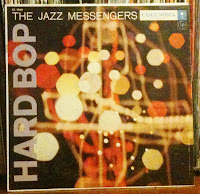The album was released in 1993 on the Verve label. In my opinion one of the best jazz albums of the 90's, and it works extremely well.
One thing about tribute albums, they can suffer from the copycat syndrome. Sometimes an artist is so faithful to the original, that you often times think: "Why didn't I just put the original on in the first place?"
Musings for Miles never plays like a mimic at all, it always feels like its own album. Yes, these are Davis compositions for the most part, but Joe doesn't play them like a carbon copy of the Davis studio versions.
Joe has brought in underrated "is that possible" guitarist John Scofield for an unusual piano-less quartet that has Scofield nearly stealing the show.
Scofield has an unusual sound that really speaks to me, a guitar tone that's blue/green tinted, yet has a rock edge to it. He uses a lot of chorus and flanger type effects, combined with his own natural vibrato that give off that blue green sound I call it, really hard to define. Bill Frisell has this type of sound too to some degree.
Henderson also stays away from the Davis songbook "ringers" here, meaning he has chosen material I don't recall seeing covered too many other places, even 23 years later!
Two tracks from Seven Steps to Heaven "Joshua" and "So Near So Far", two tracks from Someday my Prince Will Come, "Teo" and "Pfrancing", and the rarely covered, compared to "So What" anyway, "Flamenco Sketches" from Kind of Blue.
Also a few tracks from the second great quintet era, "Side Car" and "Circle" offer some unique sounds and actually sound the most like originals to me.
You really will have a hard time finding fault anywhere with this album. Joe is stellar, Sco is killer, Dave Holland is solid on Bass, and Billy Hart on drums is as good as it gets.
Hard to believe it has been 20 years since So Near So Far was released, I think it deserves classic status. It's one of those perfect modern jazz albums.
A fantastic listen.
Image credit:
So Near, So Far (Musings For Miles)
Courtesy of Amazon.com











































